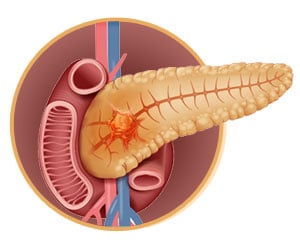Oncogenes have been dicovered by scientists which are capable of driving growth of normal human brain stem cells in a highly malignant pediatric brain tumor.
Oncogenes have been dicovered by scientists which are capable of driving growth of normal human brain stem cells in a highly malignant pediatric brain tumor.
The research, published by Cell Press in the December issue of the journal Cancer Cell, has significant implications for clinical management of aggressive pediatric brain tumors that are notorious for their dismal prognosis.Primitive neuroectodermal tumors (PNETs) arise from undifferentiated brain cells and are the most frequent malignant brain tumors in children. There are different forms of PNETs and, while scientists have made progress in characterizing the genetic abnormalities associated with some PNET subtypes, the highly aggressive cerebral tumors known as CNS-PNETs have been difficult to characterize as they represent a relatively uncommon group of tumors with ill-defined diagnostic features.
"Lack of insight into the molecular pathogenesis of CNS-PNET is a major obstacle towards development of disease-specific models and treatments for these frequently fatal malignancies," explains senior study author, Dr. Annie Huang from the Hospital for Sick Children in Ontario, Canada. To comprehensively define relevant genetic alterations associated with CNS-PNET, Dr. Huang established international collaborations with colleagues from pediatric oncology centers in Asia, Europe and the United States to complete a sophisticated high resolution genomic screen of a large collection of primary tumors.
The researchers discovered that a specific DNA segment which contains a group of 54 microRNA (miRNA) genes, (C19MC), was present in many copies in aggressive CNS-PNET tumor cells. MiRNAs are a recently discovered class of small RNA molecules that normally has the capacity to regulate expression of hundreds of genes in a normal cell. Abnormally high or low activity of miRNA genes are now increasingly known to promote cancer growth and may characterize specific tumor types and predict clinical behavior.
The researchers showed that specific miRNAs from the C19MC group, which were highly expressed in CNS-PNET cells, could stimulate growth and prevent development of normal human neural stem cells into more mature types of brain cells. The researchers went on to show that C19MC miRNA oncogenes may confer aggressive tumor phenotype by altering signaling pathways that regulate normal neural stem cell growth.
"Our findings highlight C19MC as an attractive candidate biomarker and therapeutic target for aggressive pediatric brain tumors and support an emerging theme that miRNAs are important determinants of tumor biology," concludes Dr. Huang. "Together with recent reports which implicate C19MC miRNAs in aggressive primary breast cancer, our findings suggest activation of the C19MC locus may generally define aggressive human tumors."
Advertisement
Source-Eurekalert
SAV














